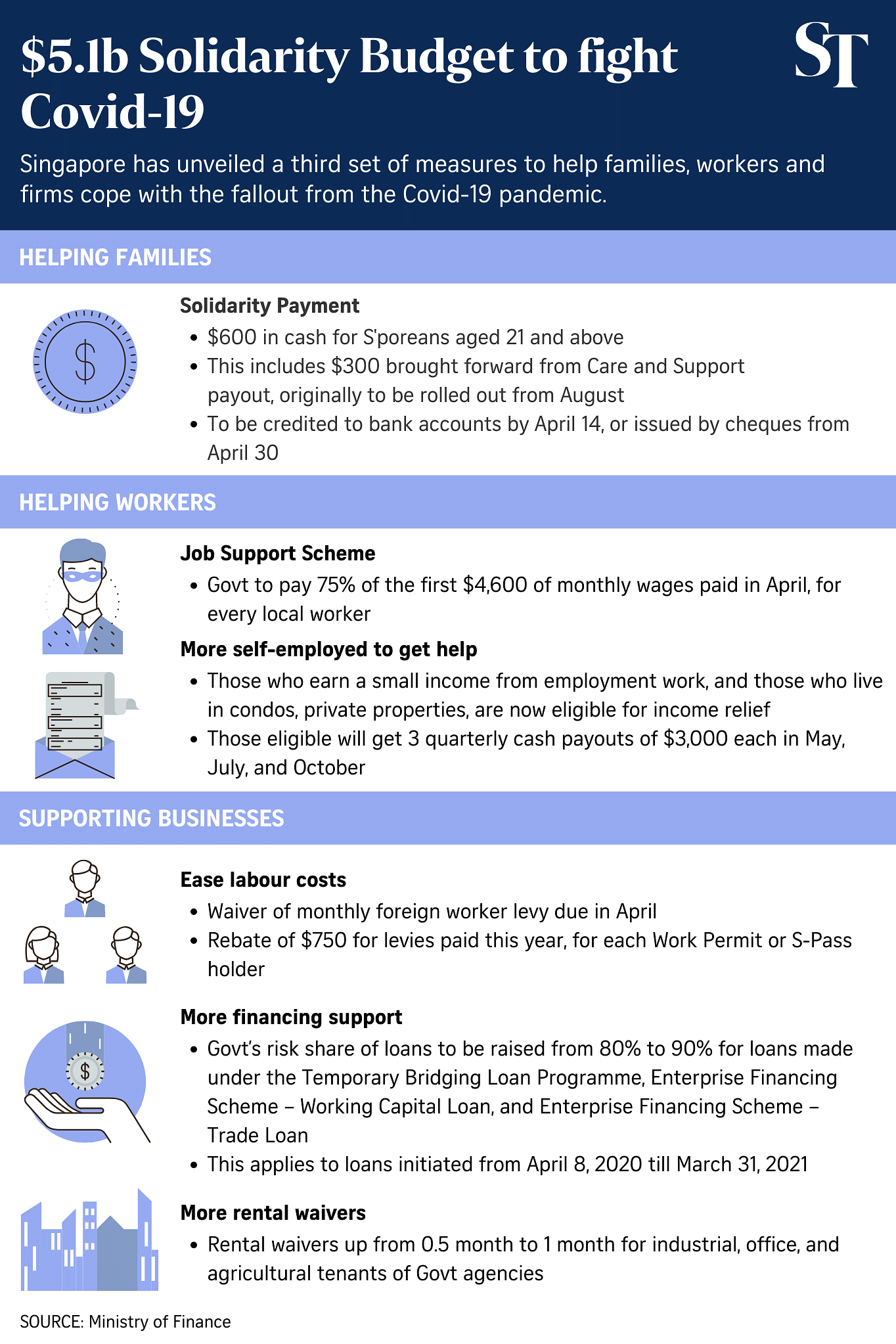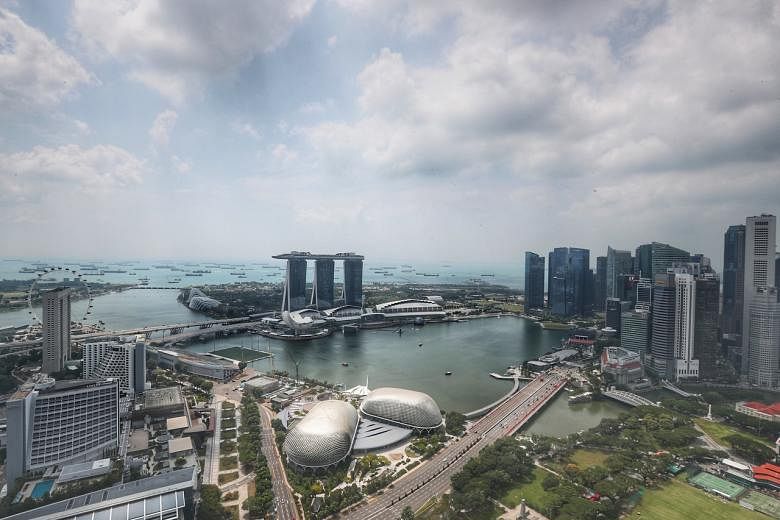SINGAPORE - The size of Singapore's reserves are a matter of national security and cannot be disclosed, lest its economic and financial stability be threatened, Deputy Prime Minister Heng Swee Keat said on Tuesday (April 7).
Responding to Workers' Party chief Pritam Singh, who spoke about the size of past reserves during the debate in Parliament, Mr Heng said these funds serve as a "strategic defence" to protect the Singapore dollar from speculative attacks, and bolster the confidence of investors and citizens.
He compared the country's reserves to Singapore Armed Forces' arsenal, and said: "No country's armed forces will ever tell you exactly how much ammunition and weaponry they really have.
"To do so is to betray valuable intelligence to potential adversaries. This is obviously not a wise defence strategy, and likewise should not be adopted for our financial reserves."
Mr Heng cited how then-President S R Nathan gave the nod for $150 billion from past reserves to be used to guarantee bank deposits during the 2008 financial crisis, which helped calm depositors and prevent a run on banks.
"As a small country without any natural resources and highly dependent on imports, our reserves are vital to our overall economic and financial stability, and our well-being," he said.
"It is neither in the interest of Singapore, or Singaporeans to repeatedly ask about the size of our reserves. We are in the middle of a storm, and I am very disappointed that Mr Pritam Singh has used this occasion to raise this question again."
Mr Heng, who is also Finance Minister, was summing up the debate on the Supplementary Budget to fund support measures to deal with Covid-19.
Singapore's past reserves comprise assets invested by the Monetary Authority of Singapore (MAS), Temasek Holdings and GIC. While MAS and Temasek disclose the sum of the funds they invest, those invested by GIC are not disclosed.
MAS has about $396 billion in foreign assets, while Temasek's current portfolio is valued at $313 billion, according to latest figures.
In response, Mr Singh said the WP seeks figures on the reserves because "when the Government introduces policies where reserves have to be employed, the question we have to ask ourselves is, is it enough, or is it too much... or is it too little."
He also asked if there could be a more nuanced way to "consider some of these numbers and have a deeper conversation about them".
Mr Heng said the current system was rigorously designed, and provided checks and balances.
The Government has to seek the President's approval for any draw on the reserves.
"I spent a lot of time explaining the details. And I can tell you that the President and (Council of Presidential Advisers) asked very good questions," said Mr Heng.
He also said that the Covid-19 crisis has reaffirmed Singapore's fiscal policy of spending prudently, investing wisely and setting aside money for the long term.
"I am extremely grateful that we have been able to tap on the deep financial reserves - our current and past reserves which have been so carefully built up, invested and managed. This has allowed us to respond to the crisis without having to borrow, and without burdening our future generations with repayment obligations," he said.
The Government has twice sought and obtained President Halimah Yacob's in-principle support to draw up to $21 billion from the reserves to fund Covid-19 support packages.
Said Mr Heng: "The aftermath of the Covid-19 outbreak may be with us for a long time, and we will need to deal with it on a sustainable basis. If the crisis deepens, our economy and government revenues shrink, we may have to make use of our past reserves again for a recovery."

The three support packages - $6.4 billion from the Unity Budget in February, the $48.4 billion Resilience Budget unveiled last month, and the $5.1 billion Solidarity Budget announced on Monday - amount to $59.9 billion, or about 12 per cent of GDP.
In all, the spending in the 2020 financial year will be the largest in Singapore's history. It will also see the country will run its largest deficit ever - $44.3 billion or 8.9 per cent of GDP.












